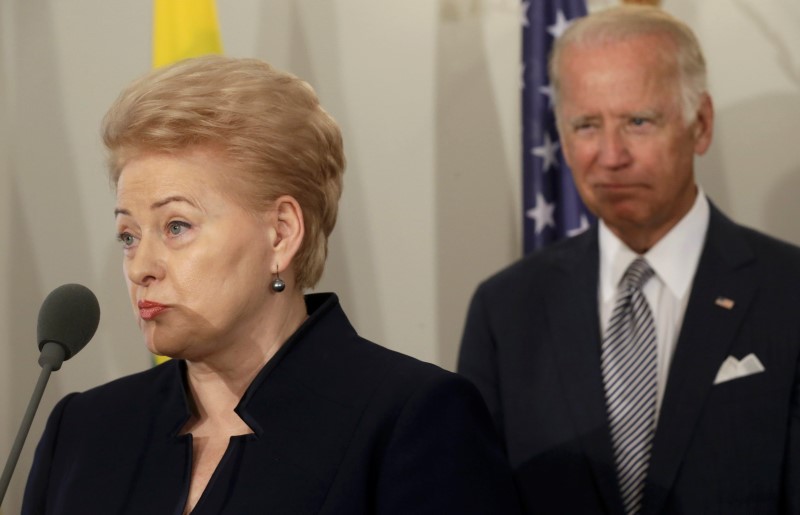By Jeff Mason and Gederts Gelzis
RIGA (Reuters) - U.S. Vice President Joe Biden told Baltic leaders on Tuesday not to take seriously comments by Republican presidential nominee Donald Trump that called into question the U.S. commitment to protect NATO allies in the face of Russian aggression.
On a trip to Latvia, Biden suggested Trump, who has never held elected office, did not understand NATO's mutual defence guarantee, known as Article Five.
"I want to make it absolutely clear to all the people in Baltic states: we have pledged our sacred honour, the United States of America ... to the NATO treaty and Article Five," Biden, a Democrat, said in the Latvian capital.
"The fact that you occasionally hear something from a presidential candidate in the other party, it's ... nothing that should be taken seriously," Biden said.
Biden's visit comes amid heightened tensions with Russia in the region and some nervousness among allies about Trump, who has suggested he might abandon NATO's pledge to defend all alliance members automatically if elected.
Both Democrats and Republicans supported the NATO pledge, said Biden, who made his remarks during an appearance with the leaders of all three Baltic states in Riga.
"There is continued overwhelming bipartisan commitment in the United States of America in both political parties to maintain our commitment to NATO," he said.
Trump is running against Democratic presidential nominee Hillary Clinton, who has also affirmed her commitment to NATO. Clinton is ahead in polls.
Lithuania, Latvia, and Estonia, the three Baltic states which regained independence in the early 1990s a half century after being annexed by the Soviet Union, see themselves on the frontline of any potential conflict with Russia.
NATO leaders agreed last month to deploy military forces to the Baltic states and eastern Poland for the first time and increase air and sea patrols to reassure allies in the region worried about the threat from Moscow.
"It is important for us that we are ready, all parties, to confirm our strategic partnership ... and we are sure that no matter what changes will be after the elections in (the) United States, their commitments ... to NATO, to (the) Baltic region, will stay," said Lithuanian President Dalia Grybauskaite, speaking after Biden.
Russia often depicts NATO as an aggressor whose members are moving troops and military hardware further into former Soviet territory, which it regards as its sphere of influence.

On Wednesday, Biden travels to Turkey where he will meet President Tayyip Erdogan and Prime Minister Binali Yildirim before visiting Sweden to discuss Europe's asylum crisis.